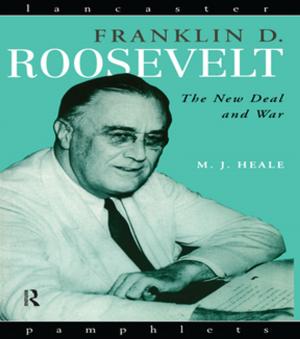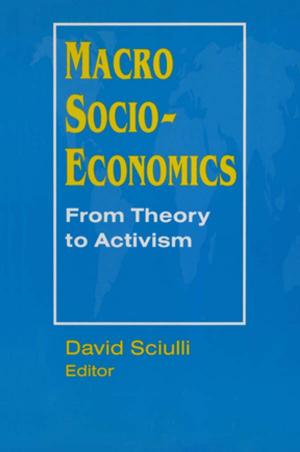The Lunacy of Modern Finance Theory and Regulation
Business & Finance, Finance & Investing, Banks & Banking, Economics| Author: | Les Coleman | ISBN: | 9781317662013 |
| Publisher: | Taylor and Francis | Publication: | August 1, 2014 |
| Imprint: | Routledge | Language: | English |
| Author: | Les Coleman |
| ISBN: | 9781317662013 |
| Publisher: | Taylor and Francis |
| Publication: | August 1, 2014 |
| Imprint: | Routledge |
| Language: | English |
This provocative book provides insight into a finance industry that is run for the benefit of banks and service providers who rely on Beatles-era theories and regulation which are totally unsuited to the modern world. The author has a near-unique perspective based on over 30 years of working – literally around the globe – for corporates, fund managers and as finance academic. In his last role his research has focused on investment decisions, and during 2012 he interviewed 34 fund managers in Istanbul, London, New York and Melbourne. He blends rich understanding of finance theory and practice to unravel the investment industry’s structure and show how banks and other finance institutions privilege themselves at investors’ expense.
The book highlights that finance industry self-regulation is weak. Risks from inexpertise, theft, bad data and other sources are high. Regulation of the industry appears to be ineffectual with the setting of such a high bar that it is virtually impossible to successfully prosecute even the most blatant and egregious offenders.
The book closes with the simple suggestion that corporations’ regulations be altered to introduce the strict liability offence of being a director or officer of a large bank that becomes bankrupt. This follows the strategy of legislation that has been effective in cleaning up the environment, making workplaces safer and reducing crime by punishing those responsible for an offence.
This provocative book provides insight into a finance industry that is run for the benefit of banks and service providers who rely on Beatles-era theories and regulation which are totally unsuited to the modern world. The author has a near-unique perspective based on over 30 years of working – literally around the globe – for corporates, fund managers and as finance academic. In his last role his research has focused on investment decisions, and during 2012 he interviewed 34 fund managers in Istanbul, London, New York and Melbourne. He blends rich understanding of finance theory and practice to unravel the investment industry’s structure and show how banks and other finance institutions privilege themselves at investors’ expense.
The book highlights that finance industry self-regulation is weak. Risks from inexpertise, theft, bad data and other sources are high. Regulation of the industry appears to be ineffectual with the setting of such a high bar that it is virtually impossible to successfully prosecute even the most blatant and egregious offenders.
The book closes with the simple suggestion that corporations’ regulations be altered to introduce the strict liability offence of being a director or officer of a large bank that becomes bankrupt. This follows the strategy of legislation that has been effective in cleaning up the environment, making workplaces safer and reducing crime by punishing those responsible for an offence.















